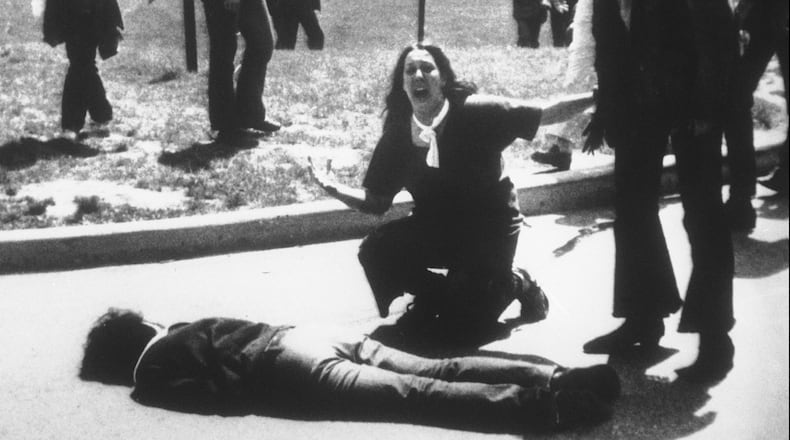Today marks the 50th anniversary of the Kent State shootings.
On May 4, 1970, the Ohio National Guard fired on students during an anti-war protest at the university, killing four students and wounding nine other students. Kent State will hold a virtual commemoration today at noon.
The killings led to a nationwide student strike that forced hundreds of colleges and universities to close.
In a guest column today, Matthew Boedy, an assistant professor of rhetoric and composition at the University of North Georgia, reflects on the closed campuses of today and the similar uncertainty and fear that students may be feeling.
By Matthew Boedy
It may seem strange to many students and faculty to see a deserted campus during this moment on the calendar.
But 50 years ago, college campuses were also empty, some for a few days, some for the rest of the school year, after a series of protests and strikes by students against the Vietnam War.
May 1970 often evokes images from the long-remembered death of four at Kent State at the hands of Ohio National Guard troops. But there was also the widely forgotten shooting of two at Jackson State at the hands of local and state police 11 days later.
Those deaths profoundly changed higher education.
Today, many have wondered how the pandemic will change academia.
As a writing teacher, I am curious how students will process the pandemic, perhaps for the first time, in their composition class.
I discovered a few years ago a book that has helped me understand how my students respond to me and to events in our lives through writing. I think it is a needed book at the moment.
The book is "Kent Letters", written by Barbara Becker Agte. It is a collection of letters written to her from her students in English that spring quarter at Kent State, May 1970.
One of Agte's students, Allison Krause, was among the four who died that day.
Agte had written to them after the shooting to tell them whatever they wrote back would suffice as a final exam. She added they all would be getting A’s.
Some students didn’t respond by letter, comforted by their professor so much they showed up at her doorstep or called. Some wrote poems, others editorials.
But some tried to describe their feelings.
Alongside the words are pictures of the actual letters, cursive script and typed words framed for history.
I think many of the student responses are applicable today:
"Sometimes you have life all figured out and then one day, it is all confusion again. I know I will never forget May 4th, but most of all I will never forget how the older generation let the students down in their ability to judge and react to a certain situation."
"As far as the parents are concerned in my community, they believe what they want to believe… When a student tries to relate what is happening on college campuses around the nation, he is immediately stamped a radical if his ideas don't coincide with theirs."
"America is not living up to its birthright. I mean, where do racism, repression, hypocrisy, war, poverty, and murder come in? Since when does patriotism mean obedience whether right or wrong?"
"Please tell me, do you feel that hope still exists through our university, or have you become disenchanted with the system to the point where you feel our only hope is through other means?"
"During the past few months I have grown up considerably. I am more confused than I was before, but at least I am thinking. I will return to Kent next September, sooner if possible."
I talked with Barbara Becker Agte on the phone last summer. She was having trouble with her now aged voice but her message was clear: the tragedy of May 1970 is not finished. It is being repeated over and over. She only wishes more would pay attention.
And so with those truths in mind, it is that last student voice above that gives me pause, stops me as I prepare for a summer semester online and a fall unknown.
Many in higher education have speculated that the pandemic and its impending budget hell will force monumental changes in colleges. I am not hopeful all those systemic changes will be good.
But at the individual level, what I want from my students after all this is over echoes that voice above.
Such thinking is hard to come by these days. But when it occurs, it usually happens when we are taught well. That is my hope for my classroom when it reopens. I look forward to the return of students.
About the Author
The Latest
Featured



